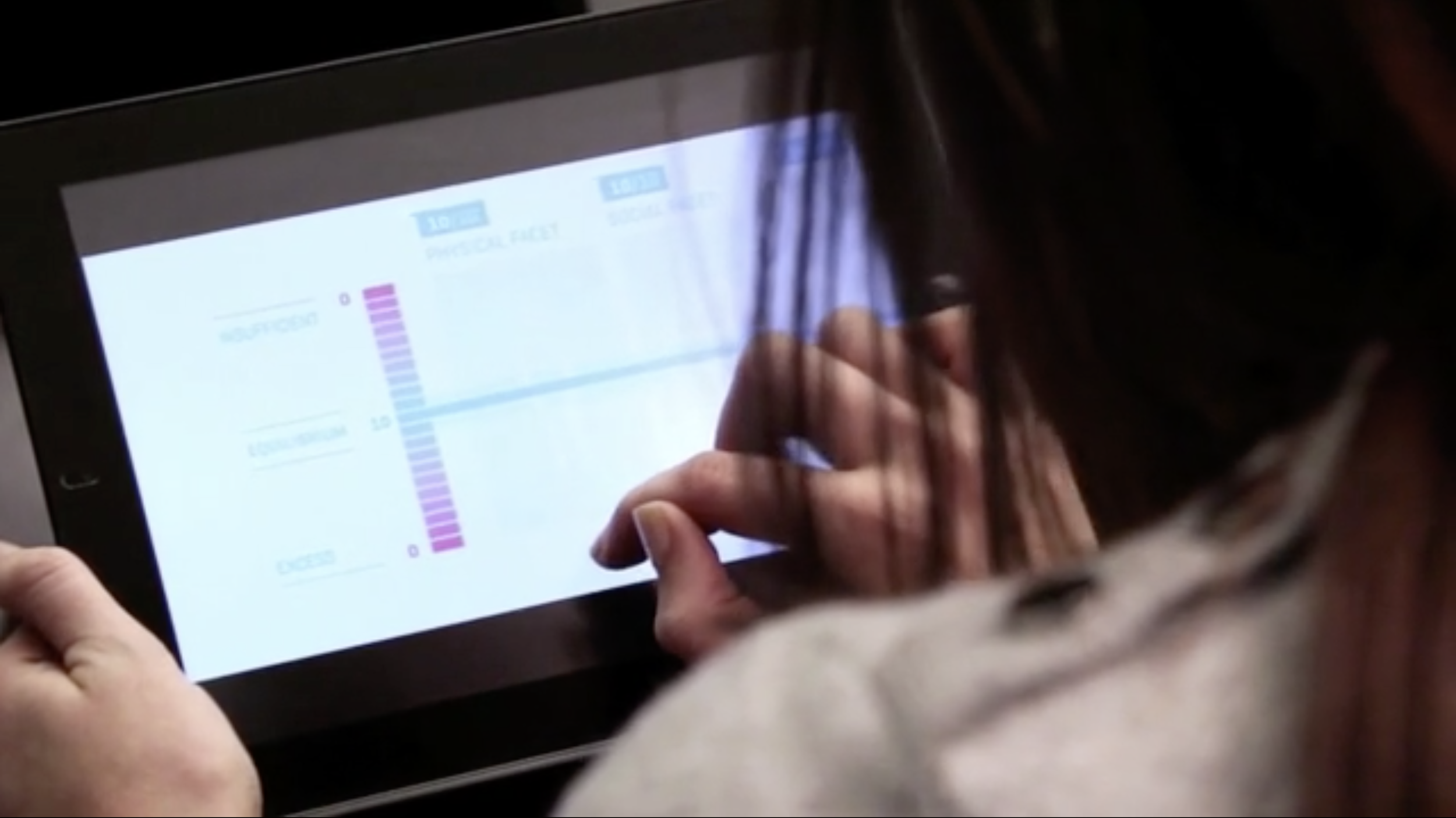Projects / Equiline App / Research
Equiline Research
Equiline leverages a clear visual format for users and breaks the siloed structure of today’s tracking apps. It is an exploration of how data visualization and integration could be improved in order to make reflection meaningful and actionable.
Process
During 2012 we performed several user interviews and looked at various secondary sources, especially a paper entitled “A Stage Based Model of Personal Informatic Systems” by Carnegie Mellon Professor Jodi Forlizzi and her students. The authors note that reflection is poorly supported in most self-quantified tools (Fitbit, Apple Watch, Nike Fuel band, Lark band) and faces many barriers.One of the barriers to reflection is that each app has its own visualization. These visualizations live on separate websites and in separate charts, which makes it difficult for avid self-trackers to create an integrated picture of their numbers.
We also consulted and analyzed social psychology frameworks to help break through this silo effect and move away from typical comparison methods. In particular, we looked towards Dr. Chris Johns of the University of Bedfordshire, who suggests exploring the 10 C’s of Reflection to investigate this problem and visualize a solution. We focused on Connection and Consequence-based on feedback from user interviews.
Frameworks and concepts analyzed:
1. Ian Li, Anind Dey, Jodi Forlizzi A stage-based model of personal informatics systems Carnegie Mellon University, Pittsburgh, PA, USA http://www.ianli.com/publications/2010-ianli-chi-stage-based-model.pdf
2. Christopher Jones 10 C’s of Reflection and model of reflection http://www.flyingstart.scot.nhs.uk/learning-programmes/reflective-practice/ten-cs-of-reflection/
https://libguides.cdu.edu.au/c.php?g=167925&p=5567284
3. Designing you life Book. How to build a well-lived, joyful life.Bill Burnett & Dave Evans.
https://designingyour.life/the-book/
4. Measure what Matters Book. John Doerr. https://www.whatmatters.com
5. Ikigai (生き甲斐, pronounced [ikiɡai]) is a Japanese concept that means "a reason for being." The word "ikigai" is usually used to indicate the source of value in one's life or the things that make one's life worthwhile. The word translated to English roughly means "thing that you live for" or "the reason for which you wake up in the morning." https://en.wikipedia.org/wiki/Ikigai
6. Self-tracking By Gina Neff and Dawn Nafus From The MIT Press Essential Knowledge series https://mitpress.mit.edu/books/self-tracking
7. Equilibrium in Psychology https://www.encyclopedia.com/social-sciences/applied-
Team: Caroline DeWick
Advisor: Kim Erwin
User Interviews and appearances: Jessica Barnes, Masha Safina, Katianne Pechauer, and Jorge Angarita.
IIT Institute of Design IIT Institute of Design is a graduate school of the Illinois Institute of Technology teaching systemic, human-centered design. Since its founding as the New Bauhaus in 1937 in Chicago by László Moholy-Nagy, a Bauhaus teacher (1923–1928), the Institute of Design has grown into the largest full-time graduate-only design program in the U.S. IIT Institute of Design is ranked number one for research and theory. The Institute of Design created the country's first Ph.D. design program in 1991. https://www.id.iit.edu











